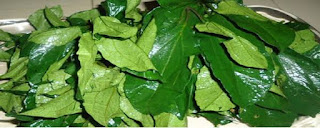AVOCADO PEAR
Avocados are green-skinned, fleshy body, usually pear-shaped,
egg-shaped, or spherical.Optimally ripe avocados are typically known
for their silky, creamy texture and rich flavors (which some people
describe as "nutty" or "nut-like"). Avocados owe their creamy texture
to their high fat content. Not all avocados are identical in terms of
fat content, however. As a general rule, smaller sized avocados tend
to be more oily and higher in fat, and large sized avocados tend to be
somewhat less oily and lower in fat percentage.All avocado belong to
the science genus/species group called Persea americana.Cardiovascular
Support Provided by Avocados
Numerous studies have looked at the relationship between avocado
consumption and blood fat levels, types of fat in the bloodstream,
inflammatory risk in the cardiovascular system, and degree of
cardiovascular protection against oxygen-based damage. The study
results are consistent in showing benefits from avocado in all of
these areas. Most of the benefits are associated with avocado
consumption at least multiple times per week in amounts of
approximately one cup. (Depending on the variety, one cup of avocado
is approximately the same as the amount of pulp found in one
small-to-medium sized avocado. Some studies also show benefits with
smaller amounts of avocado in the 1/2-cup range.
A wide range of nutrients in avocado has been associated with these
cardiovascular benefits. Included in this list would be: (1) avocado
fats, which include very large amounts of the monounsaturated fatty
acid, oleic acid, as well as the unusual phytosterols, including
beta-sitosterol, campesterol, and stigmasterol; (2) the antioxidant
nutrients in avocado, including carotenoids like chrysanthemaxanthin,
neoxanthin, and lutein as well as vitamin E and vitamin C; (3)
anti-inflammatory components of avocado, including the carotenoids and
phytosterols listed above as well as catechins and procyanidins (two
families of flavonoids).
Risk of metabolic syndrome—which includes symptoms involving
problematic blood fat levels and elevated blood pressure—has been
shown to be reduced by intake of avocado. Many of the nutrients
provided by avocado are likely to play a role in this important health
benefit. Research in this area encourages us to think about avocado as
being truly preventive in its cardiovascular health benefits, and
worthy of consideration in many types of meal plans.
One important note about the cardiovascular benefits of avocado: most
of the encouraging studies that we have seen do not simply "dump"
avocado into a meal plan as some type of "add-on" food. Instead,
avocado is integrated into a balanced diet with a controlled amount of
fat, calories, and intake across food groups. There does not appear to
be any requirement for the diet to be low fat, since
avocado-containing meal plans that provide up to 34% of their total
calories from fat have been shown to provide cardiovascular scale
research in this cardiovascular area.
has clearly been shown to provide a wide variety of antioxidant and
anti-inflammatory nutrients. Included here are both conventional
nutrients like manganese, vitamin C, and vitamin E, as well as
phytonutrients like unique carotenoids, flavonoids, and phytosterols.
Most of the larger scale, human research studies Avocado that we have
seen focus on the cardiovascular system and risk of oxidative stress
and inflammation in this system. In terms of the whole body, however,
and its many key physiological systems, the antioxidant and
anti-inflammatory benefits of avocado have been tested primarily in
the lab or in animal studies. For example, numerous animal studies
have looked at the impact of avocado intake on risk of inflammation in
connective tissue and have speculated about the potential benefits of
avocado for reducing human arthritis risk. Because of the promising
nature of these preliminary studies, we look forward to new research
involving large numbers of human participants and intake of avocado in
a weekly meal plan.The American Diabetes Association (ADA) recommends
a healthful eating pattern as a key component in managing diabetes,
with meals and snacks that emphasize nutrient-dense foods in
appropriate portion sizes. As a nutrient-dense fruit like Avocados are
a natural food choice for a healthful eating pattern, a key component
of a diabetes eating plan because they contain good fats( mono-and
polyunsaturated fats)
Dietary fiber is not broken down (digested) by the body, so it does
not raise blood sugar levels. Keeping blood sugar levels constant is
an ideal goal as part of a diabetes control plan.
Sodium and Cholesterol-Free
Avocados are naturally sodium and cholesterol free, two dietary
components of which to be mindful of as part of a diabetes diet
Healthy eating and avocados go hand in hand. Whether it's calories,
fiber, saturated fat or cholesterol, avocados have more of what you
want and less of what you don't want. Naturally cholesterol-free,
avocados spreads, toppings and dips are a creamy and nutritious
alternative to saturated fat laden recipes. Other essential vitamins
are found in avocados; vitamin B, K,C,E, potassium,phytosterols and
carotenoids. When you compare the numbers, they tell a deliciously
satisfying story:
Fresh avocado on sandwiches and toast or substituted as a spread in
place of many other popular foods may help reduce dietary intake of
calories, fat, saturated fat, sodium and cholesterol.










Comments
Post a Comment